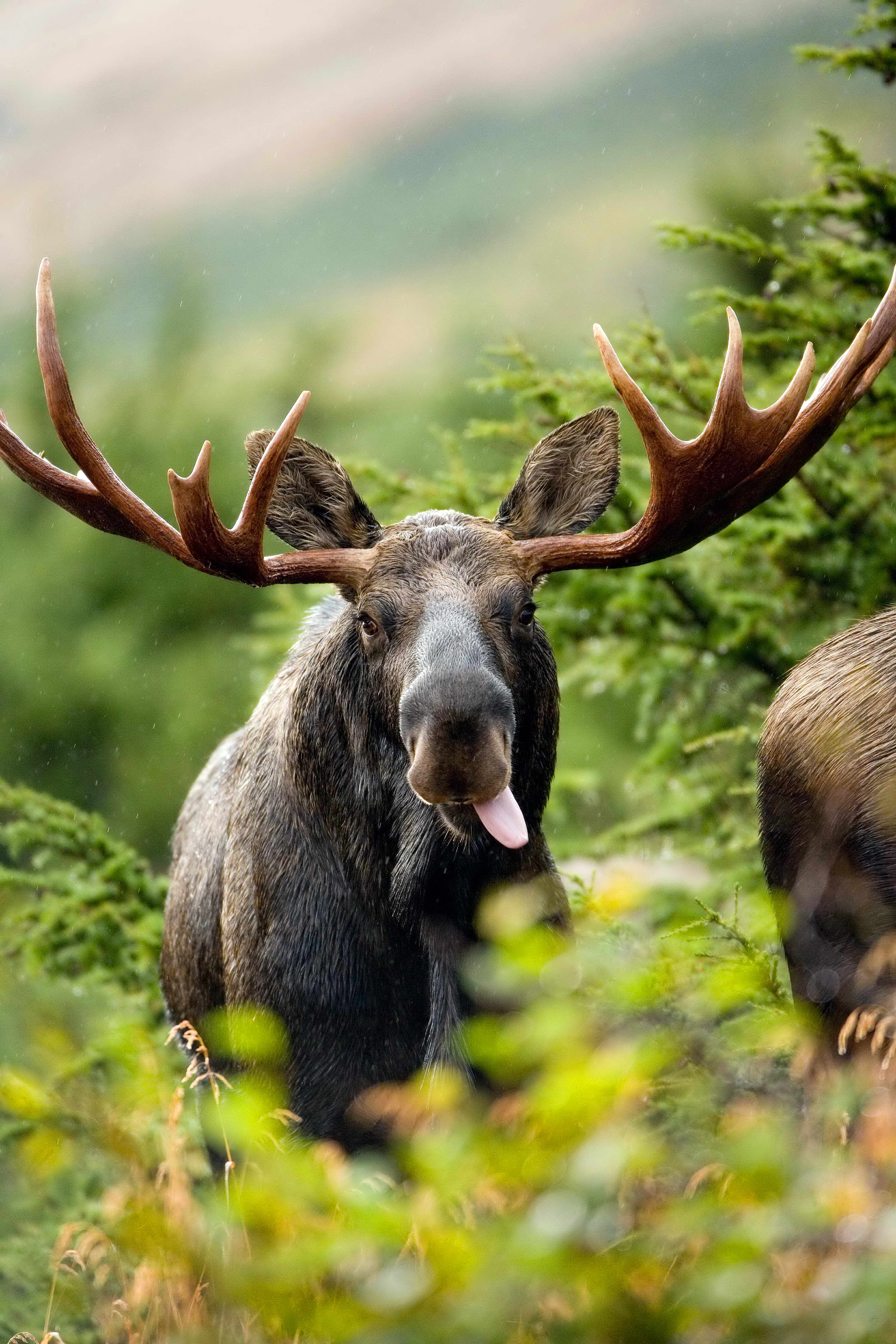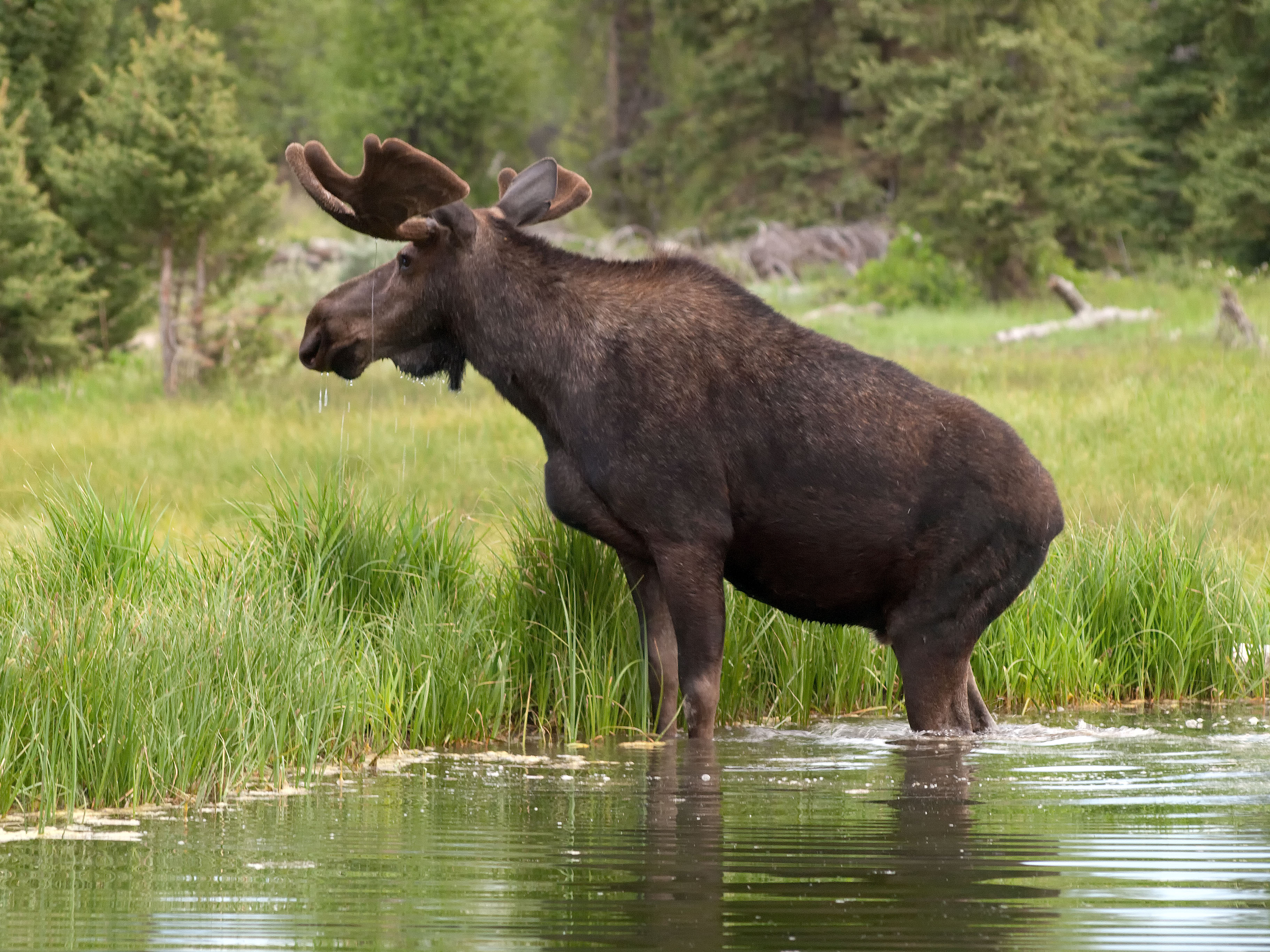Moose In Spanish: How To Say 'Alce' And Broaden Your Animal Vocabulary
Ever wondered how to talk about those majestic, towering creatures with the impressive antlers when you're speaking Spanish? It's a question many language learners find themselves asking, especially when they're expanding their animal vocabulary, so, that's what we're here to talk about today.
You might be planning a trip to a place where these magnificent animals roam, or perhaps you just want to deepen your understanding of the Spanish language. Either way, knowing the right term for "moose" can be really helpful, and it's also a fun bit of knowledge to pick up, you know?
Our goal here is to show you the proper way to say "moose" in Spanish, give you some related terms, and just generally help you feel more comfortable discussing these amazing creatures. We'll explore the main translation and some other interesting bits, so you'll be pretty well set.
Table of Contents
- The Primary Term for Moose in Spanish
- Why 'Alce' Is the Standard Word
- Beyond 'Alce': Other Words and Ideas
- How to Say It Right: Pronunciation Tips
- Putting It to Use: Example Sentences
- Where to Find More Learning Tools
- Moose in Conversation and the Wild
- Frequently Asked Questions About Moose in Spanish
The Primary Term for Moose in Spanish
When you want to say "moose" in Spanish, the word you'll typically hear and use is `alce`. This term is widely accepted and understood across Spanish-speaking regions. It's the direct translation you'll find in most reputable dictionaries and language guides, that's for sure.
This word, `alce`, is masculine and singular. So, if you're talking about one moose, you'd say `el alce`. If there's more than one, it becomes `los alces`. It's a pretty straightforward word to remember, actually.
Many language resources confirm this, showing `alce` as the authoritative translation. It comes with example sentences and audio pronunciations too, making it easier to learn. That's a good thing, right?
- Apothecary Diaries Characters
- Kristen Bell Nude
- Old Youtube Logo
- The Dutch Giant
- American Bully American
Why 'Alce' Is the Standard Word
The term `alce` is the standard because it directly refers to the animal we know as a moose. It's not a general term for deer or other antlered creatures. This precision is important in language, so, you want to be clear.
Think about how many English words have specific meanings. Spanish is similar. `Alce` points specifically to that large, unique animal. It's the term you'll find in extensive translation databases, like those with over 100,000 Spanish translations of English words and phrases, which is pretty comprehensive.
If you're looking to translate "moose" into Spanish, this is how you say it. It's a simple, direct answer. Even machine translation services like Google Translate will give you `alce` for "moose", which just shows how common it is, you know?
Beyond 'Alce': Other Words and Ideas
While `alce` is the main word for moose, sometimes people might use other terms, especially when talking about similar animals or in very specific regional contexts. It's good to know these, just in case, or to expand your animal word list, kind of.
Some discussions might bring up words like `cimarrón` or `caribú`. Now, `cimarrón` generally refers to something wild or untamed, often an animal that has gone feral. It's not a direct translation for moose, but it could describe a wild animal, so, that's different.
`Caribú` is the Spanish word for caribou, which is a different animal altogether, though it shares some similarities with moose, like being a large deer. So, while you might hear it in a conversation about large northern animals, it's not the same as `alce`, definitely not.
It's always helpful to explore these terms to really get a feel for animal vocabulary in Spanish. Learning how to say "moose" in Spanish is a quick language lesson, but adding these other words makes it richer, you know, for sure.
Understanding Gender in Spanish Animal Names
In Spanish, almost every noun has a gender, either masculine or feminine. This applies to animal names too. Knowing the gender helps you use the correct articles (`el`, `la`, `los`, `las`) and adjectives, which is pretty important.
As we talked about, `alce` is a masculine noun. So, you'd say `el alce` for "the moose." This is consistent, regardless of whether the moose is male or female. The word itself carries the masculine gender, which is interesting, in a way.
For some animals, there are separate words for male and female, like `toro` (bull) and `vaca` (cow). But for `alce`, the word itself is masculine, and you'd typically use `macho` (male) or `hembra` (female) if you needed to specify the animal's sex, like `un alce macho` or `un alce hembra`, you know, to be clear.
How to Say It Right: Pronunciation Tips
Saying `alce` correctly is pretty straightforward once you get the hang of it. Spanish pronunciation is often very consistent, which is nice. The letters usually make the same sounds every time, which is actually helpful.
The 'a' in `alce` sounds like the 'a' in "father." The 'l' is like the 'l' in "light." The 'c' before 'e' sounds like the 'th' in "thin" in parts of Spain, or like an 's' in Latin America. The 'e' sounds like the 'e' in "bed." So, it's something like "AHL-seh" or "AHL-theh," depending on the region, you know, pretty much.
Many language learning resources offer audio pronunciations for `alce`. Listening to native speakers say the word is one of the best ways to get it right. You can often find vocabulary cards with pictures, audio, and pronunciation guides, which are really useful tools, honestly.
These resources help you hear the word in context and practice saying it yourself. It's a great way to make sure you sound natural when you're speaking, so, give it a try.
Putting It to Use: Example Sentences
Knowing a word is one thing, but using it in a sentence is how you truly learn. Here are some ways you might use `alce` in Spanish, just to give you an idea of how it works.
El alce es un animal muy grande.(The moose is a very big animal.)Vimos un alce en el bosque.(We saw a moose in the forest.)Los alces tienen cuernos impresionantes.(Moose have impressive antlers.)¿Hay alces en esta región?(Are there moose in this region?)
These sentences show how `alce` fits into everyday conversation. You can see how the article `el` or `los` changes based on whether you're talking about one or many. This helps you get comfortable with the word in different situations, which is pretty much the goal.
Many authoritative translations of "moose" in Spanish include example sentences. These examples are crucial for understanding how the word functions naturally in Spanish. It's like seeing it in its natural habitat, in a way.
Where to Find More Learning Tools
If you're really looking to expand your vocabulary and learn how to say "moose" in Spanish, or any other word, you've come to a good place for advice. There are lots of resources out there that can help you, actually.
Online dictionaries, like Leo's English ⇔ Spanish dictionary, are fantastic. They often provide noun and verb tables for different cases and tenses, links to audio pronunciation, and even relevant forum discussions. These tools are free and very helpful for detailed language study, so, that's a good start.
Beyond dictionaries, there are language learning apps and websites that focus on vocabulary building. Many offer interactive lessons, vocabulary cards, and exercises with pictures and audio. These can make learning new words, like `alce`, much more engaging and effective, which is really what you want.
You can also find specialized guides that explore both formal and informal ways to use words. These guides help you understand the nuances of language, which is pretty cool, honestly. Learning how to say "moose" in Spanish is just one step, and there's a whole world of words to discover.
For more about language learning, you might want to Learn more about Spanish on our site, or perhaps check out this page for vocabulary tips. These can give you a broader view of how to approach learning new words.
Moose in Conversation and the Wild
Knowing the word `alce` can be useful in many different contexts, especially if you're discussing wildlife or outdoor activities. Moose are truly remarkable creatures, and being able to talk about them in Spanish adds a nice layer to your conversations, you know, for sure.
Imagine you're talking about large game animals or simply describing nature. Having the correct term for moose makes your Spanish sound much more natural. These animals are known for their size and their impressive presence in certain northern regions, which is really something.
People often talk about the size of moose, their antlers, and their habitats. If you're discussing wildlife, or maybe even planning a trip to an area where moose live, knowing `alce` is quite handy. It helps you connect with others who might share an interest in these animals, so, it's pretty good.
Sometimes, conversations about moose might even touch on topics like wildlife observation or even discussions about managing animal populations. For example, people might talk about seeing a bull moose, or how they prepare for observing these creatures in their natural environment. The word `alce` is central to these kinds of talks, and that's just how it is.
It's interesting how specific words become important in certain fields. For those who spend time in areas with moose, whether for wildlife photography or just appreciating nature, `alce` becomes a very practical word. It's part of the language of the outdoors, in a way, you know.
The sheer size of a moose, with its powerful build, often comes up in conversations. People might describe an `alce` as being "very large" or "quite powerful." These descriptions help paint a picture for the listener, and having the right animal name is the starting point, that's for sure.
So, whether you're just chatting about animals or getting into more detailed discussions about wildlife, `alce` is your go-to word. It's a key piece of vocabulary for anyone interested in these magnificent creatures and the Spanish language, honestly.
Frequently Asked Questions About Moose in Spanish
Here are some common questions people ask about saying "moose" in Spanish, just to clear things up.
Is "alce" the only word for moose in Spanish?
Yes, `alce` is the most common and widely accepted word for moose in Spanish. While other terms might refer to similar animals or wild creatures, `alce` specifically means moose. It's the direct translation you'll find in almost all language resources, so, that's the one to use.
How do you pronounce "alce"?
The pronunciation of `alce` is typically "AHL-seh" in most Latin American Spanish, and "AHL-theh" in parts of Spain. The 'a' sounds like the 'a' in "father," and the 'e' sounds like the 'e' in "bed." Many online dictionaries and language apps provide audio pronunciations, which are really helpful for getting it just right, you know.
Is "alce" masculine or feminine?
`Alce` is a masculine noun in Spanish. This means you use masculine articles with it, such as `el alce` (the moose) for singular, and `los alces` (the moose, plural) for multiple. Even if you're talking about a female moose, the word `alce` itself remains masculine, which is pretty typical for many animal names, actually.
For more information on Spanish animal names, you can visit a reputable source like SpanishDict, which offers detailed translations and examples.

Free picture: up-close, bull, moose

File:Bull Moose.jpg - Wikimedia Commons

File:Moose 983 LAB.jpg